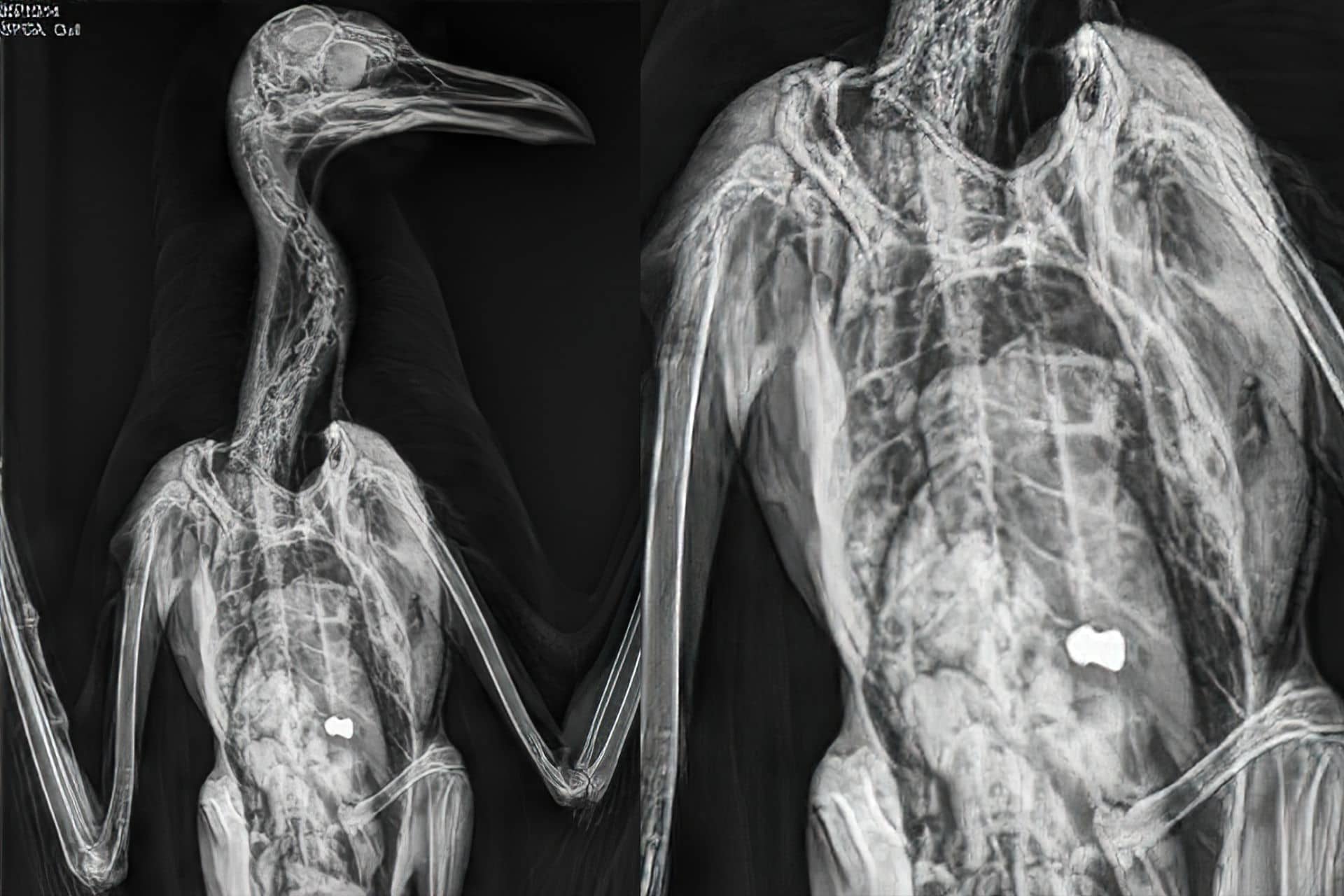The RSPCA was contacted by a concerned member of the public on 2nd May after the gull was found unable to move in a garden in Araluen Way, Lake, Isle of Wight.
RSPCA Inspector Mark Buggie, who is investigating for the animal welfare charity, said:
“The gull had been in a resident’s front garden for some time and did not move when approached so they called us to help.
“The bird was totally exhausted and had no use of their legs and a spot of blood on the underside of the body. Very sadly the injuries were serious for this poor bird and they had to be put to sleep.”
X-ray revealed a pellet
At a vets, an x-ray revealed a pellet embedded in the gull’s body – suggesting that the bird had been deliberately attacked.
Mark added:
“This is such a cruel and cowardly act especially at this time of year when this adult bird should have been nesting. That’s not to mention how dangerous and idiotic it is to fire weapons in a built up area.
“We’re now issuing an appeal for information to try and find out who has done this. Anyone with any information is urged to contact our inspectorate appeal line on 0300 123 8018 or the Police on 101.
“Every year the RSPCA receives almost 1,000 calls to investigate cases like this and help hundreds of animals that are the defenceless victims of air gun attacks.
“Cats and wildlife are normally the animals that are more susceptible to these incidents simply because they are out in the open with no one to protect them. The injuries caused by such attacks are horrific and often fatal – as was the case with this poor gull.”
RSPCA seeking tighter controls
The RSPCA is calling for tighter controls on air weapons. This, along with better education and explanation of the law when buying an air gun, and requirements that everyone must receive basic safety training before being allowed to walk out of the shop, could help relieve the problem.
All wild birds are protected under the Wildlife and Countryside Act 1981 and it is illegal – except under licence – to take, injure or kill wild birds
Advice on living in harmony with gulls
The RSPCA gives the following advice on living in harmony with gulls:
- Gulls make the most noise between May and July when they are breeding. If gulls on your roof disturb you, or you are worried they may block a gas flue, you can prevent them nesting there in the first place by taking action during the winter. Your local environmental health department or bird control company should be able to tell you about the devices available.
- In some seaside towns where people have fed gulls, they have learned to snatch food. Try to keep food to yourself but don’t blame them if they can’t tell the difference between scraps willingly offered and your bag of chips!
- Dispose of edible litter carefully – put it in gull-proof litter bins. Plastic bags left in the street are an open invitation for gulls to investigate. Gull-proof bins are easily acquired, are cheap and very effective.
- Gulls that swoop suddenly on people or pets are usually trying to protect chicks that have got out of/left the nest. If you see a gull chick leave it alone – its parents can look after it better than you.
- Remember, if you see a fully flighted (fledgling) gull chick – usually mottled brown and grey in colour – leave it alone unless it is obviously sick, injured, in danger, or you know its parents are dead. Anyone with concerns for a gull’s welfare should contact the RSPCA Cruelty and Advice Line on 0300 123 4999.
To help the RSPCA continue rescuing, rehabilitating and rehoming animals in desperate need of care please visit our website or call our donation line on 0300 123 8181.
News shared by Suzanne on behalf of IW RSPCA. Ed.





